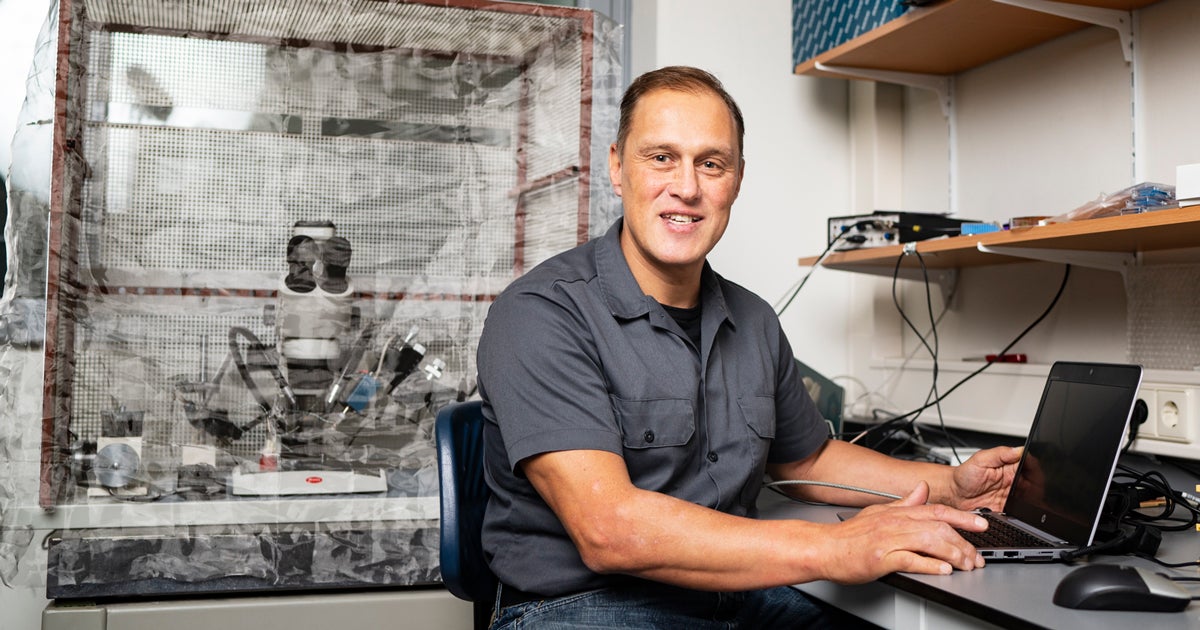Interview with Peter Burbach and Bobby Koeleman
Interview with Peter Burbach and Bobby Koeleman
Genetics: fertile grounds for translational neuroscience
Making sense of a never ending stream of genetic data

Genetics connects (neuro)scientists in different fields of expertise. It makes them deal with novel issues too: the classification of quite a few brain-related disorders needs to be reconsidered. Genetic research also helps shaping a new generation of doctors: the translational, biomedical type.
one of the most important aspects of genetic research is to carefully consider which genes to study in depth and which not. Bobby Koeleman, principle investigator in the Department of Genetics, adds: “In fact, we see more than we want to see, it is a data-overkill.”
“We can finally see what we've always wanted to see, and that doesn't make our work easier” says Peter Burbach, Professor of Molecular Neuroscience, whose research concentrates on the pathogenesis of autism and other neurodevelopmental disorders with genetic origins. Ever since the complete human genome has been decoded,
Time investment uitklapper, klik om te openen
The study of genetic risks, one of the main themes of Brain Center Rudolf Magnus, thrives because of overlap and collaboration between different kinds of expertise, clinical, animal and behavioral research. After all, it is not about just that one particular gene. Koeleman: “We want to understand what and how cellular mechanisms are triggered –or slowed down, or sped up– by those particular genes. How do these mechanisms cause a disease?”
“I'm a little jealous of Bobby and his group”, Burbach admits. “His work makes tremendous progress, everybody is watching, there is money, and exciting new findings pop up on a regular basis! My research is always a time investment: six years ago we decided to investigate a certain group of genes implicated in autism, and only now results are coming in, only now we can conclude if we made a good or a bad choice.” Koeleman: “But our work wouldn't flourish if it wasn't for my group being embedded in this hospital, where fundamental research on the function of genes is done. Genetic research on its own doesn't do much for patients.”
New definitions uitklapper, klik om te openen
Nonetheless, biological and translational thinking is becoming the norm, says Burbach. “Young doctors are more used to looking at patients and their predicaments in a biological way. They're also eager to combine clinical work with research. On the other hand basic researchers become more familiar to clinical problems which I think is very positive. Translational neuroscience is a research strategy in which clinical and basic disciplines will flourish together, particularly on the fertile grounds that genetics provide.”
Genetic knowledge calls for new definitions of diseases. Take autism: so many overwhelming genetic variation is found in people with autistic traits that it wouldn't surprise Koeleman if the name itself will eventually disappear. Something the other way around could happen as well, illustrates Burbach: “There is a famous Scottish family with one specific gene defect, which causes some members to develop schizophrenia, and others different psychiatric disorders. A new classification might be: gene X-related disorders.

